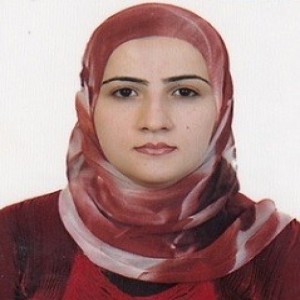Published Journal Articles
2018
An Investigation of Refusal Strategies as Used by Bahdini Kurdish and Syriac Aramaic Speakers
2018-01
Advances in Language and Literary Studies (Issue : 1) (Volume : 9)
For the purpose of achieving a successful communication, issues such as the appropriateness of speech acts and face saving become essential. Therefore, it is very important to achieve a high level of pragmatic competence in speech acts. Bearing this in mind, this study was conducted to investigate the preferred refusal strategies Kurdish and Syriac native speakers use when faced with offers and requests from equal status interlocutors. The current study has used a modified Written Discourse Completion Test (WDCT) consisting of six situations (three of which elicit refusals to offerings and the other three to requests). Forty subjects participated in this study: 20 native speakers of the Kurdish language (10 male and 10 female students) and 20 native speakers of Syriac language (10 male and 10 female students). All participants are currently pre-graduate students attending Zakho University. The participants were asked to provide written data that express their refusals to these situations. The data collected have then been analyzed descriptively according to frequency and number of occurrences of semantic formulas used by Beebe et al (1990). The results showed that a) the Syriac Native Participants (SNP) s frequently preferred indirect and adjunct strategies for refusals rather than direct ones, b) the Kurdish Native Participants (KNP) s often preferred direct and indirect strategies more than adjunct ones, c) the results also revealed that gender has a great influence on the use of refusal strategies in various ways. Finally, this study concludes that both KNPs and SNPs tended to use more strategies when refusing requests than offers whereas …
2017
Context and Linguistic Skills Factors Affecting the Pronunciation of Arabic Proper Names in Speakers of Bahdini Kurdish
2017-12
Advances in Language and Literary Studies (Issue : 6) (Volume : 8)
The purpose of this research is to explore the pronunciation of Arabic proper names by Bahdini
Kurds living in Duhok and the districts around. Thirty-two respondents were selected to say fifty
Arabic proper names commonly used by Kurdish today’s society. The variables identified are
linguistic skills in Kurdish and Arabic, and the extent of the formality of the context. The study
concluded that being a fluent speaker of Arabic gives a Bahdini Kurdish speaker the ability to
pronounce the Arabic proper names in a native-like accent. Yet, those speakers have revealed
a tendency towards the use of a Kurdish pronunciation of such names when the context was
informal. Dissimilarly, the Kurdish pronunciation was regularly used by speakers skilled or
unskilled in Kurdish language and linguistics in both formal and informal situations.
2011
Kurdish Personal Names in Kurdistan of Iraq: A Sociolinguistic Perspective
2011-07
Duhok university journal (Issue : 1) (Volume : 1)
The paper tackles personal names among the Kurds in Kurdistan of Iraq and regards naming as an important aspect of the Kurdish society. The paper looks at the Kurdish names within the perspective of linguistics anthropology. It considers names as not being arbitrary labels but sociocultural tags that have sociocultural functions and meanings. It is found out that the Kurds have always given personal naming a great deal of importance generation after generation. They borrow personal names from different cultures due to religious, political and ideological reasons; however, they have always clothed them in the garments of their national ideology. It is also realized that the Kurdish names after the First World War became the mouthpiece of the Kurds' call for freedom, independence and revolution. The paper discusses the typology of Kurdish names. These include (1) family names (2) rhyme and rhythmic names,(3) unique names,(4) death prevention and survival names,(5) nature and place names (6) occupational and achievement names,(7) circumstantial names,(8) honorifics names,(9) beauty names,(10) flora and fauna names, and (11) non-Kurdish names.
Back
